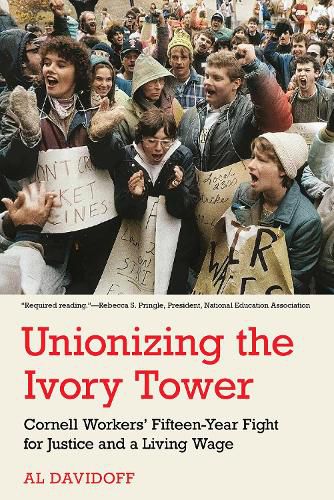Readings Newsletter
Become a Readings Member to make your shopping experience even easier.
Sign in or sign up for free!
You’re not far away from qualifying for FREE standard shipping within Australia
You’ve qualified for FREE standard shipping within Australia
The cart is loading…






Unionizing the Ivory Tower chronicles how a thousand low-paid custodians, cooks, and gardeners succeeded in organizing a union at Cornell University. Al Davidoff, the Cornell student leader who became a custodian and the union's first president, tells the extraordinary story of these ordinary workers with passion, sensitivity, and wit.
His memoir reveals how they took on the dominant power in the community, built a strong organization, and waged multiple strikes and campaigns for livable wages and their dignity. Their strategies and tactics were creative and feisty, founded on worker participation and ownership.
The union's commitment to fairness, equity, and economic justice also engaged these workers-mostly rural, white, and conservative-at the intersections of racism, sexism, classism, and homophobia. Davidoff's story demonstrates how a fighting union can activate today's working class to oppose antidemocratic and white supremacist forces.
$9.00 standard shipping within Australia
FREE standard shipping within Australia for orders over $100.00
Express & International shipping calculated at checkout
Unionizing the Ivory Tower chronicles how a thousand low-paid custodians, cooks, and gardeners succeeded in organizing a union at Cornell University. Al Davidoff, the Cornell student leader who became a custodian and the union's first president, tells the extraordinary story of these ordinary workers with passion, sensitivity, and wit.
His memoir reveals how they took on the dominant power in the community, built a strong organization, and waged multiple strikes and campaigns for livable wages and their dignity. Their strategies and tactics were creative and feisty, founded on worker participation and ownership.
The union's commitment to fairness, equity, and economic justice also engaged these workers-mostly rural, white, and conservative-at the intersections of racism, sexism, classism, and homophobia. Davidoff's story demonstrates how a fighting union can activate today's working class to oppose antidemocratic and white supremacist forces.